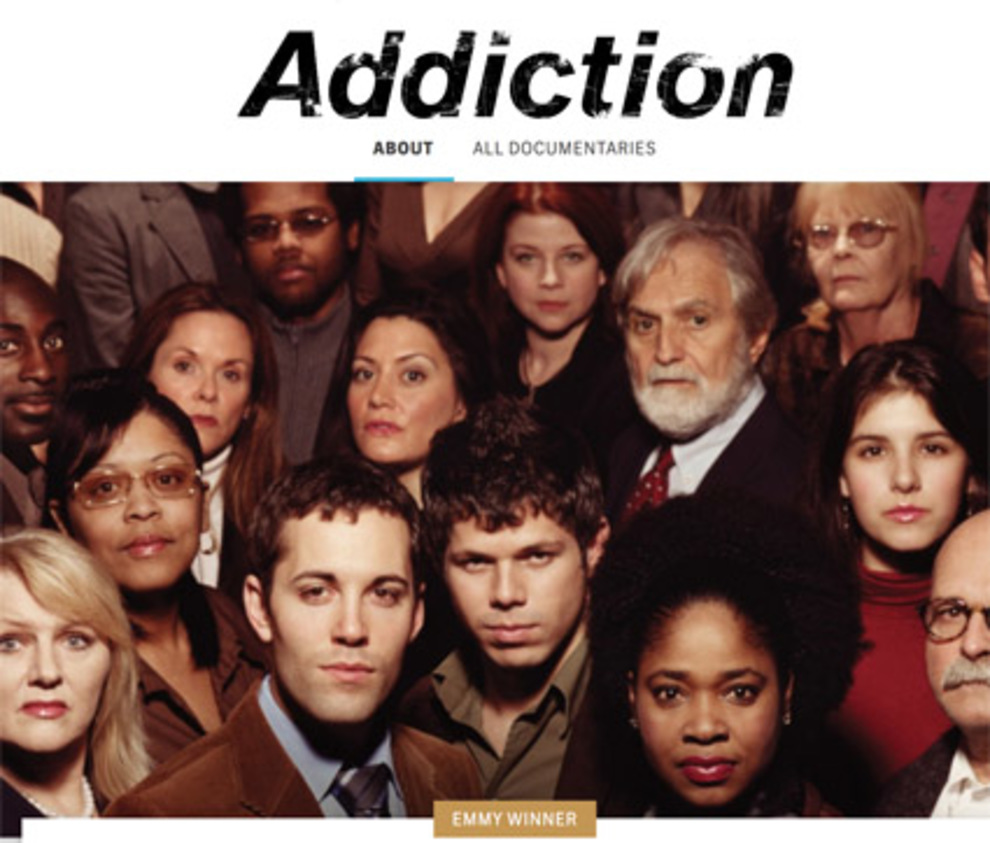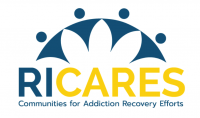We’re Fed Up with the Rollercoaster!

An Allies member and his wife wrote in looking for guidance on improving the situation with their son who is living at home for now. He becomes belligerent when his parents bring up more treatment. The parents are fed up with the roller coaster.
This question originally appeared on the Allies in Recovery Member Discussion Blog, where experts respond to members’ real-life questions and concerns.
“Thank you for very valuable documents and modules in your presentations, as I found this helpful trying to deal and live with my son and his substance abuse problems. We have had him in various inpatient programs resulting in dismissal and some follow up treatments. He has also participated moderately in outpatient therapy, however does not believe or see that is of any use and thinks he can quit on his own, which has not been the situation. We are struggling as a family living with him under these conditions and find that forceful and aggressive threats to get help only makes things worse for him and for all living with him. So we are trying the approach indicated by Allies and perhaps see positive results. He has been speaking with a therapist and a recommendation to then consult a psychiatrist for screenings and evaluation; hopefully this will take place however he must want the help, and the more we insist he is not sure he will follow up with it. We brought up outpatient again but he is combative and will not participate. He is more comfortable speaking one on one. He struggles and then uses when there is anxiety, holidays, friends, girlfriends, and now ex-girl after many instances with his behavior the past several months.
Any advice would be appreciated as my wife and I are trying to be on same page; this has been now past 3 years of a roller coaster lifestyle and unstable in our home as far as who our son is on a daily basis.”
Like many families, you seem to have many of the answers to your own questions
Dear member,
Thanks so much for writing in, sharing your situation, and asking for guidance.
We’re thrilled you’ve found Allies in Recovery, and it sounds like you and your wife share a really beautiful goal: getting on the same page in order to help your son. Being able to unite and share an approach will certainly be a huge step in the right direction.
Reading your comment, we noticed that you’ve already figured out quite a lot of important things about what works vs. what doesn’t, and what your son is willing to consider, vs. what he isn’t. This is great!! However, your son’s use is increasing, perhaps due to the recent breakup.
You often have a lot of the answers — or at least some really good clues
Again, we think you’re on the right path. Here’s what looks hopeful or promising to me when I read your comment:
- You and your wife have recognized the need to be “on the same page” as you face your son and tackle the issues related to his addiction to drugs;
- You found Allies in Recovery’s eLearning program, which is going to give you a huge portion of what you need to know as you move forward;
- You have done your own “testing” and come to the same conclusion as the people who designed and tested CRAFT: using force or threats – even when it’s about wanting a loved one to get help for a serious issue – “only make things worse for him and for all living with him” as you wrote;
- You are paying close attention to the possibilities and openings that you are seeing. You are studying the situation (No matter whether this comes from failed experiments or not! The key thing is, you aren’t giving up!). You have already identified what works best for your Loved One (“He is more comfortable speaking one-on-one”). CRAFT asks the family to start paying closer attention to the things your Loved One is willing to do, the things they are willing to get help for… you’re on the right track here!
- Your son has been to treatment several times!!! This is not proof that treatment doesn’t work for him. We see this as meaning a few things:
a) your son recognizes, at least to a certain extent, that the substances are a real problem for him – very positive!
b) he has been willing to address the substance use in the past – so he very likely will be willing again, especially with your new CRAFT-inspired environment;
c) the type of treatment may not have been the best match for him; and/or
d) he may simply be one of the many who require multiple treatment episodes to get real traction in their recovery.
- Last, and not at all least, your son is seeing a therapist (albeit reluctantly) and has agreed to a psychological evaluation (he may go).
Again, I am seeing many reasons to feel hopeful about your son and your situation. With some diligent practice of the CRAFT approach through the eLearning modules, and by accepting our offer of personalized guidance for members, (found under the Community menu), I think your family can make real strides forward, and once and for all, get off the roller coaster!
Finally, we recently published the following blog post for a family with some similar issues as yours. Feel free to read it here: “How to Make Your Request That They Seek Help.”
Here are some suggestions for dialogue from that post:
Restate the wish or dip you just heard your Loved One say:
I hear you, you’re angry and fed up living with me (avoid the word “us”). I agree with you, something needs to change.
Show compassion… praise or somehow recognize the attempts your Loved One has been making to improve their life. Start with an “I” statement… (I know you’ve been struggling; I’m so proud of you for cutting back on weekdays, etc.)
I know this setup isn’t ideal. I have come to understand how hard this is on you. I thank you for trying (name of few things that over the last couple months show a little effort on his part). My sense is that you try and still you sink low.
Own your part… (I know I’m the one who has been pushing for you to do something about your drinking/drug use/anxiety/depression)
I’m sorry for my part in all this. I really want you to feel better and to get your life back on track. I know I’ve pushed you hard in the past. I haven’t understood what you were going through. I want you to know I have reached out for help for myself. We are all in this together. I am trying to understand.
Say how it makes you feel… (I feel so overwhelmed by what is going on with you; I am so scared for you…)
I’ve been scared. I get angry when I’m scared and I’ve said things I regret. I am worried that COVID has made things even harder on you. It pains me to see you struggling. I love you dearly.
Offer to help… (I have this list, I have the name of a counselor, I have a few options… Can we look at them together?)
I’ve put together a list of options (put mental health treatment on top). Some of these I’ve called to make sure you can get in. I’ve put all the details on the list. Will you look at it with me?
Will you consider trying one of these? Perhaps we can make the call together.
Is there something else we can do together to head off another downward spiral?
If the answer to treatment is “no,” you thank your son for listening to you, and tell him you will talk again.
When the family sees 100% resistance, is it really 100%?
Families often tell me, “nope, tried that, he’s not interested in doing anything!”
The family sees 100% resistance.
But is there truly 100% resistance? Being able to identify, and act appropriately on, even 1% of motivation, is one of the family’s best tools in the CRAFT kit. In Module 8, Segment 1, on our member site, we talk about motivation and resistance for change and how motivation shifts internally, up and down. We teach the family to watch/listen for these shifts by learning to recognize “change talk”: a wish or a dip.
Is your son totally shut down, totally unwilling to do anything whatsoever to help himself? There’s a good chance that he isn’t. Our suggestion is to wait for a wish or a dip before talking treatment. You want to line up, as best you can. your son’s nascent motivation with the message of treatment.
Perhaps he sounds ambiguous about his situation, one day agreeing and saying he’ll do something, the next moment saying he’s fine and to leave him alone. This flip-flopping is felt by families as manipulation or lies, and adds to possible discord. It is important to note that ambivalence is normal and part of the recovery process.
Using Behavior Change theory helps you successfully apply CRAFT
Behavior change theory holds that there is a stage in any behavior change where the person contemplates the pros and cons of changing a behavior, and thinks about addressing that problem behavior.
Let’s take a night of blackout drinking by someone with alcohol problems. Perhaps the internal contemplation sounds something like this (the “pros” and “cons” are within the framework of wanting to move toward change):
My head and body hurt so bad right now (pro X behavior change), and I don’t remember what happened at the end of the night or how I got myself to bed (pro). I drank too much (pro). I need to do something about the drinking (pro), but right now I have to get to work (con), so I need this beer to straighten me out so that I can get moving (con). I’ll think about this (pro) but not until after my sister’s wedding next month (con). I want to be able to drink then (con). So, I’ll think about this another time (con).
I think any one of us can relate to this back-and-forth in our head when we need to change a behavior that is causing us problems. This back-and-forth is a sign that your loved one is thinking about a change. So flip flopping can be a sign of that internal evaluation we do when we contemplate change.
Your son is attending treatment. Give that psychiatrist a chance to work. I agree your son could benefit from a group process, as his social anxiety seems palpable from your description. The process wouldn’t focus on drugs per se, but give him the skills to build resiliency when in the world.
You can lean on CRAFT and Allies in Recovery, it’s tried and tested!
CRAFT and the modules we’ve made available for families on this site are:
1) evidence-based… you can relax a bit, knowing that you are building on something that has been scientifically proven effective;
2) straightforward, with a really logical, clear outline to follow;
3) pretty complete, offering skills training, examples, and the “why” behind the strategy we teach.
How our most successful members use this site
Most members we’ve heard from who have really worked the Allies program from A to Z (including our now-collaborator Laurie MacDougall, who started out here as a family member seeking guidance) tell us that they come back to the site day after day after day. They watch the video modules time and time again. Each time they notice something they hadn’t noticed before. Each time there’s a new bit of information that turns out to be the tool they were looking for.
Again, welcome. We’re here for you.
Allies in Recovery provides support and guidance on how to identify and cope with the flood of emotions you are feeling. The CRAFT method teaches you the strategies and skills to engage your loved one on a path to recovery. At Allies we provide you with information critical to understanding your loved one’s alcohol/drug addiction, and train you in the important role you can play in guiding them to recovery.
A membership at Allies in Recovery.net brings you into contact with experts in CRAFT and the field of recovery and treatment for substance use. Our unique, award-winning learning platform introduces you to CRAFT and guides you through the latest in evidence-based techniques for unblocking the situation. Together we will move your loved one towards recovery.











